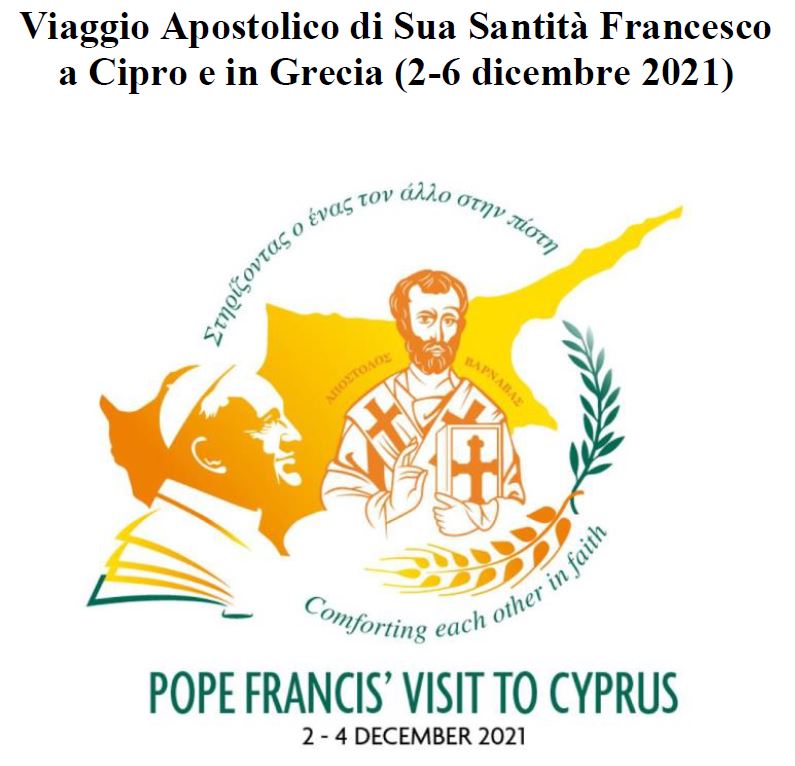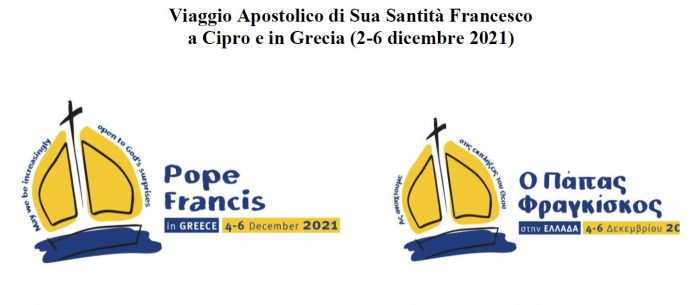by Nikos Tzoitis
The Greek visit is a tribute to the osmosis between Greek and Christian thought. During the new visit to Lesbos the pope will meet refugees stranded on the island. Cyprus has a past of Christians, Muslims and Jews living together. Cypriots have struggled after the Turkish invasion of 1974.
Athens (AsiaNews) – Pope Francis is set to visit Cyprus and Greece from 2 to 6 December, two Mediterranean countries with profound Hellenistic cultural traditions, where Greek thought embraced and identified itself in Christian doctrine. The two countries have common origins, but different historical paths.
The trip to Greece is a tribute to the osmosis between Greek and Christian thought, expressed in the New Testament, in the ecumenical councils of the first millennium, in the reflections of the great theologians of the Christian East.
It is also a gift for the bicentenary of the Greek national revival, which expressed a desire by a whole people for freedom against every kind of oppression that humiliates the dignity of the human person.
The pope will travel to Lesbos (Lésvos), not only to show affection to migrants, but also to evoke that the Church of Christ still exists.

Together with Ecumenical Patriarch Bartholomew and Archbishop Ieronymos II of Athens and All Greece, the pontiff visited the Greek island in 2016 to meet desperate Syrian refugees, and more, victims of the cruelties of war.
Their visit, whilst it did not solve the root causes of the refugee crisis, certainly raised awareness of the problem in civil society. This is why Francis’ visit to Lesbos should not be seen as a mere act of commemoration, but as a reminder of our duties as sincere Christians at the gates of Europe.
We must remember above all that Cyprus, the farthest corner of Europe close to the Asian and African continents, saw the rise of the first European Christian Apostolic Church of the Apostles Paul and Barnabas. The latter ordained Lazarus as the first bishop of the island.
The Church in Cyprus was also the first autocephalous church in the Christian world.
Because of its important geopolitical position, over the centuries the island has been the scene of clashes and invasions of all kinds, without losing its Greek cultural identity and Christian faith.
Even during the Muslim occupation, first by the Arabs and then by Ottoman Turks, the local population always found a way to live together in mutual respect.
In the past, Cyprus’s religious communities – Christian (largely Greek Orthodox, Armenian and Melkite), Muslim (Turkish Cypriot) and Jewish – coexisted peacefully, building churches, mosques and synagogues side by side.
The invasion of the island in 1974 by the Turkish army caused a break. Ankara acted with the apparent aim of re-establishing the constitutional foundation of the Republic of Cyprus, as defined by the London Treaties of 1960, after the attempt by Greece’s military junta to overthrow the democratically elected president of Cyprus, Archbishop Makarios.
The consequence of that invasion is the division of the island into two areas separated by barbed wire, the forced displacement of populations, as well as the transfer of 150,000 settlers from inner Anatolia to alter the demographic balance of the island, plus the permanent presence of 35,000 Turkish troops.
In addition to the forced Islamisation of the northern part of the island, the invasion resulted in the almost total obliteration of the local cultural heritage, most of which was sold off on European markets.
It should be noted as well as that most of the island’s original Turkish Cypriot inhabitants emigrated to Europe, Canada and Australia, as they did not accept Ankara’s authoritarian rule. Even the third generation of settlers brought from Anatolia has felt the need to breathe a different air.
It should also be noted that Turkey has never complied with the UN resolutions on Cyprus. Among the root causes of the Cyprus question, however, there is the control of resources – not only economic – in the Middle East.
Former Turkish Prime Minister and Foreign Minister Ahmet Davutoglu, a theorist of “neo-Ottomanism”, has explicitly cited the importance of Cyprus for Turkey in his book titled Stratejik Derinlik (Strategic Depth).
“Even had there not been not a single Muslim Turk on the island, Cyprus would have always been a strategic land for our interests,” he said.
With the division of Cyprus, republican Turkey achieved the second most important conquest, after that of the Hatay region in 1938.
In this context, the visit by Pope Francis takes on a very significant character for Cyprus. The pontiff will be able to reiterate the importance of “Fratelli tutti” and stress that answers require offering our religious convictions on existential questions.
No religious belief, as the great Orthodox theologian Ioannis Zizioulas said, justifies its existence by the mere claim that it holds the truth.
For Zizioulas, a religious belief must demonstrate that it exists not to enslave people but to free them and provide answers to fundamental questions. Only then will the world not lose hope and resort to fundamentalism.
Cyprus, which was able to live with diversity in the past, expects a lot from Francis and could set an example for the troubled Middle Eastern world.

